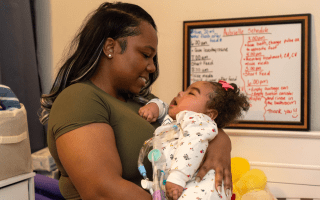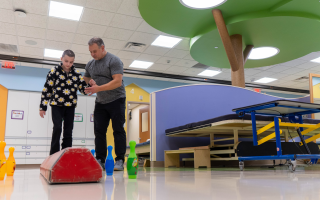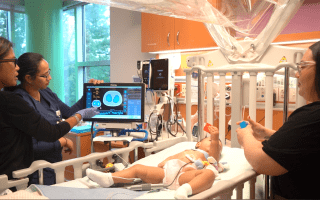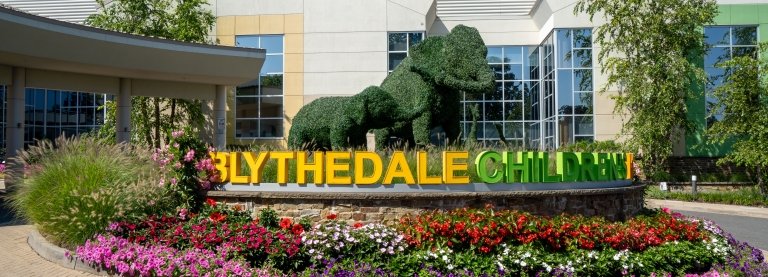Ocean and Rio Get a Taste of the Good Life
Premature twins thrive thanks to ventilator weaning and feeding therapy.
Ocean and Rio were born at just 23-weeks gestation and, as a result of their extreme prematurity, developed chronic lung disease. The twins had other complications, including a mass in Rio's airway that blocked his ability to speak or swallow, and Ocean had a perforated intestine that would require surgery.
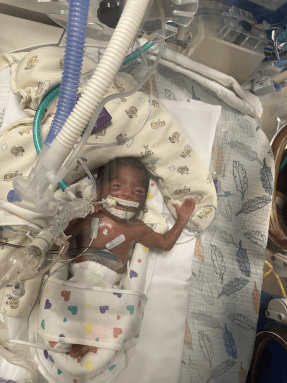
Once their extremely fragile conditions stabilized, they were admitted to Blythedale Children's Hospital for pulmonary rehabilitation, ventilator weaning and comprehensive rehabilitation, under the care of Dr. Dennis Davidson, neonatologist and unit chief of Blythedale's Infant and Toddler Unit.
"At 23-weeks gestation, when they were born, pretty much just the airways were open," said Davidson. "The sacs at the end of the airways where oxygen and carbon dioxide exchange were extremely immature."
Blythedale's modern respiratory support technology includes critical care ventilators, portable ventilators, BiPAP, CPAP, bubble CPAP and high flow nasal cannula. This level of expertise enabled a safe and smooth transition for the fragile babies to Blythedale.
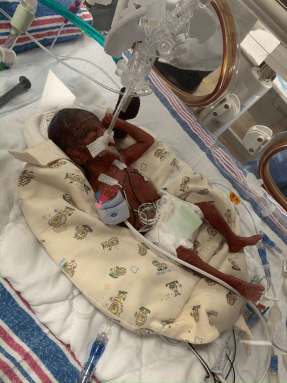
"We wanted to be able to wean them off their respiratory support and provide them with optimal nutrition, as well as provide them intensive therapies that are not available in acute care hospitals."
Yet before they could get stronger through feeding therapy, the team at Blythedale collaborated to strategically help the twins first with respiratory support and therapy.
"Respiratory has to come first," said Gina D. Longarzo, SLP-CCC, senior speech language pathologist and Rio's feeding therapist. "Their bodies don't have enough energy to do both eating and breathing."
While ingesting food, the body naturally experiences brief periods of apnea, or cessation in breathing. At the same time the body also requires energy to manipulate food in the mouth, whether it's a puree or liquid.
"We really did that strategically," said Nicole Lang, SLP-CCC, speech language pathologist and Ocean's feeding therapist. "If we could see that he [Ocean] was working a little bit harder to need to breathe, we would back off of the feeding by mouth. Once he was feeling better and we would reintroduce toral feeding, he would then take off and have such growth."
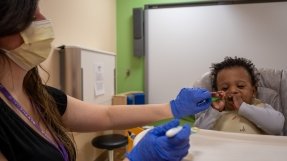
Discovering what the twins loved to eat was part of the success. Through trialing different purees, the therapists experimented with apples and pears. It was when they tried bananas that they knew they had found the twins' favorite.
"Ocean had banana and his eyes just opened," said Diahony Ayala, Rio and Ocean's mom. "For Rio, at first he wasn't sure about the bananas but then he grabbed the spoon out of Gina's hand and fed himself!"
As a feeding therapist, I love putting the puzzle together," said Longarzo. "I love figuring out what's wrong, why is it wrong, and how can I help? That's my favorite part."
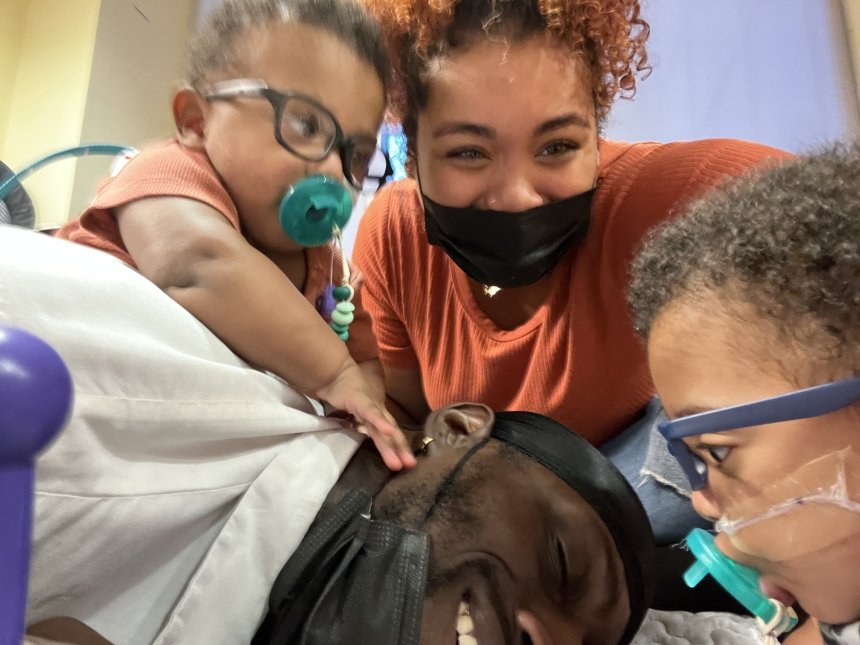
The twins discharged from Blythedale's inpatient unit in November. Since then, they come to the Hospital regularly for outpatient feeding therapy with both Longarzo and Lang, who continue to help the twins eat primarily by mouth with less reliance on their gastric tubes.
"Blythedale made the transition from the hospital to being at home so smooth," said Diahony. "And they were patient with me and really took the time to get to know my kids."
